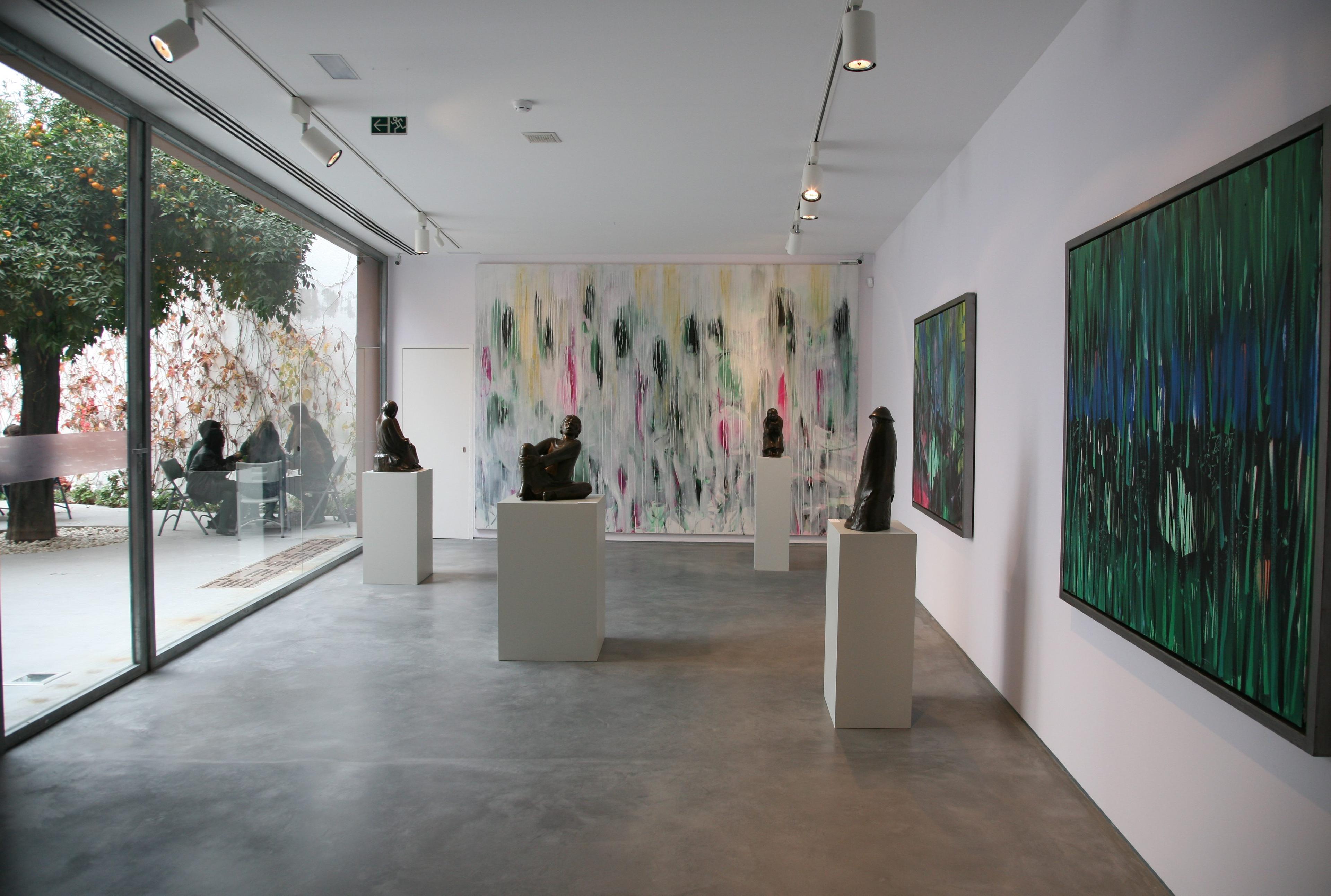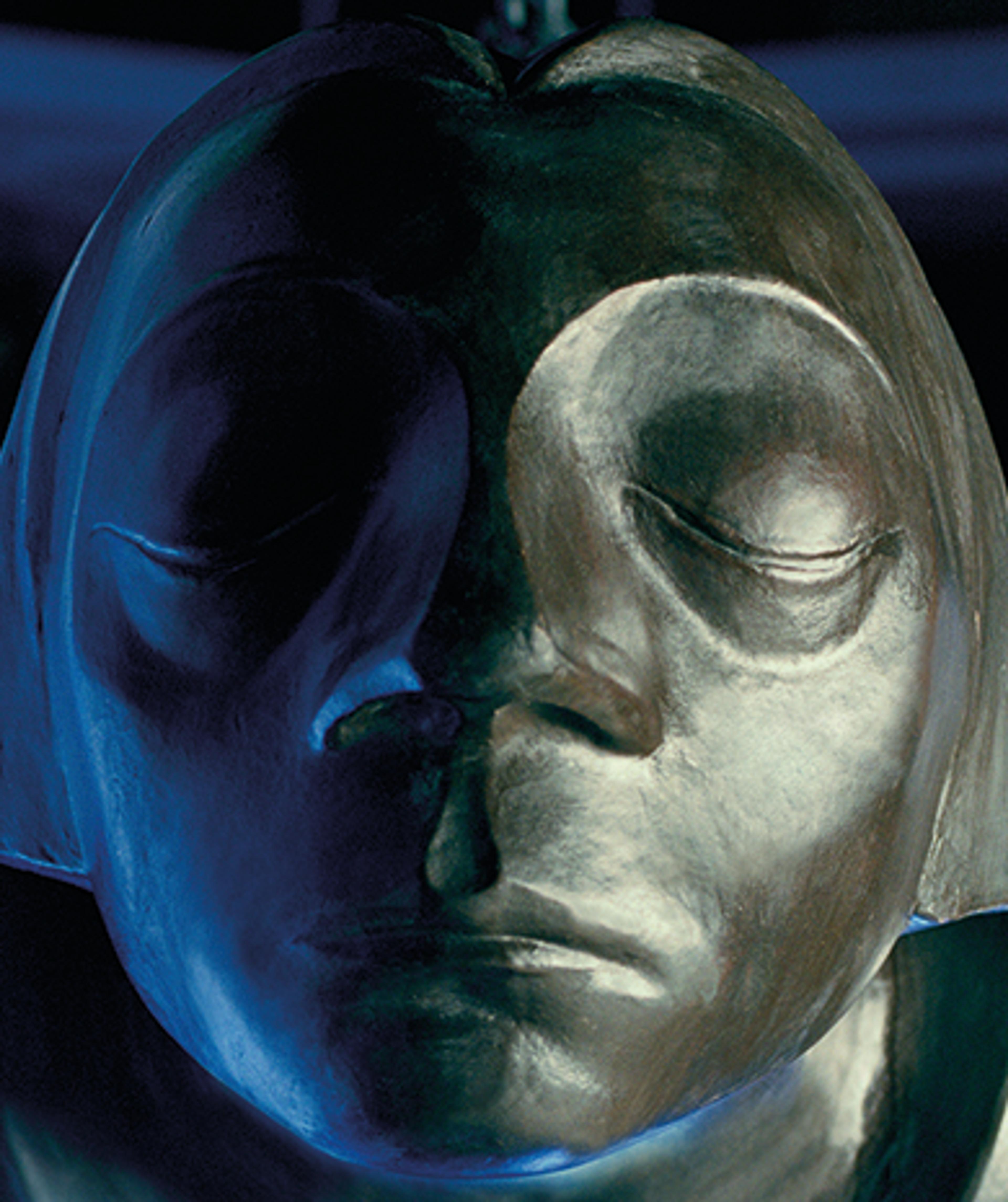
17.04 - 02.10.2016
Jorge Rando Passion
Jorge Rando's thoroughly idiosyncratic revitalization of Expressionism aims to make the spiritual force visible anew as an orientation in the world.
Barlach Kunstmuseum Wedel
The Spanish painter Jorge Rando (born 1941) is regarded in his country as the most important representative of neo-expressionist painting.
Rando, who went to Germany after studying philosophy in Málaga and lived in Cologne for 23 years, understands Expressionism as an art concept of current importance. It is German Expressionism that attracts him, that he seeks, that his heart burns for. It is Nolde, it is the "Brückekünstler", but it is also the "Blaue Reiter", in whose pictures he immerses himself. It is not the liberation of the ego, the uncompromising subjectivity, that interests him. It is the search for the transcendent, this vehement struggle for a truth, an ultimate truth, that Jorge Rando wants to paint.
Spain hardly knew expressionism and the development of Spanish modernism is a special history in Europe, broken, delayed and traumatized many times. The most famous Spanish artists of classical modernism worked in exile. At the beginning of the twentieth century, as many countries of the West set out for the, so presumed, "golden future", this country, powerful for many centuries, sank into chaos. It had lost almost all of its colonies in the late 1890s, and the golden empire of the never-setting sun, which had prepared modernity with a fascinating history of art, became a society stagnating in political and ideological antagonisms until the end of the Franco dictatorship in 1975. At the same time, in the first decades of the twentieth century, Spain is a laboratory for the international left and especially for the anarchists, those most persecuted freedom fighters in the world. Until the end of Franco's regime, and in memory until today, a rift runs through Spanish society full of violations and crimes against each other. Jorge Rando carries all this in himself and in his art. At the same time he reflects the deep religious roots of his culture, focuses on the divergence between Catholicism and spiritual mysticism and seeks their language in the present.
Rando's expressionism challenges us. The colors of the South and the collective memories of failure, the transparent layering and bundling of light, the joy of the human as well as the divine, and the risk of a will to hope in an age that has surrendered man's will to shape to global economic and political forces, define his paintings. This is Rando's passion, as the mystic Juan de la Cruz put it 600 hundred years ago: "Where there is no love, put love and you shall draw out love. It's not that we lack that we can't write and speak, because usually we have more than enough of that; it's that we lack that we can't be silent and act."
With the exhibition "Jorge Rando - Passion" the Ernst Barlach Gesellschaft Hamburg continues the dialogue with European and international artists and awards the Ernst Barlach Prize 2016 to the Spanish artist Jorge Rando. Especially in view of the challenges to Europe, it is more than ever necessary to face the critical questioning of history and identity, also and especially in art.
Curator: Heike Stockhaus. Juror: Prof. Robert Lucander, Berlin University of the Arts. The exhibition is realized in cooperation with the Museum Jorge Rando in Málaga.







